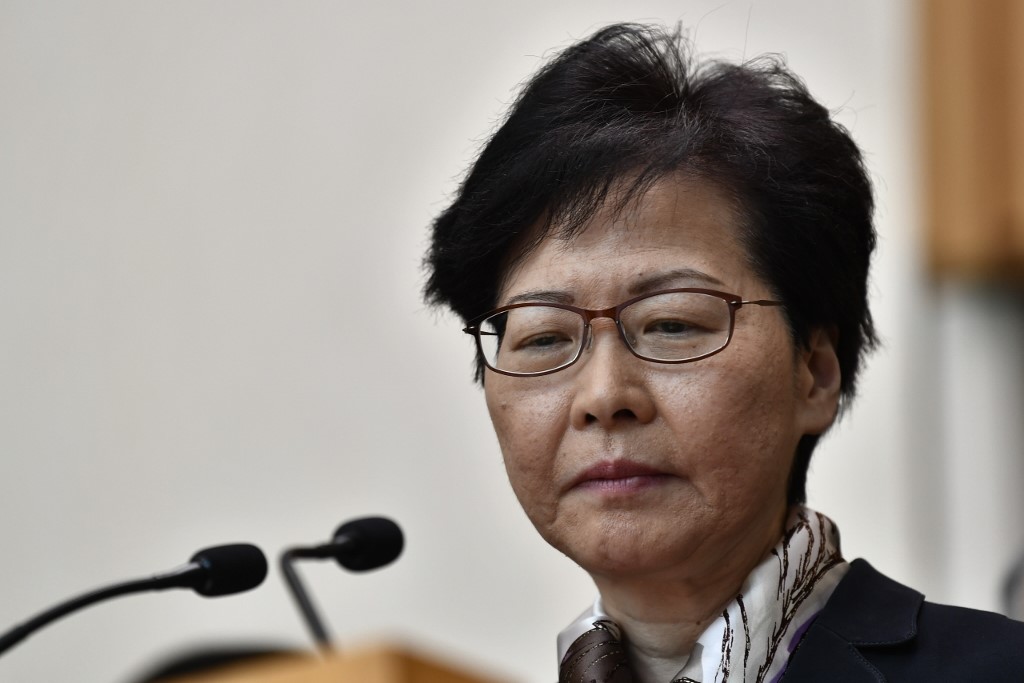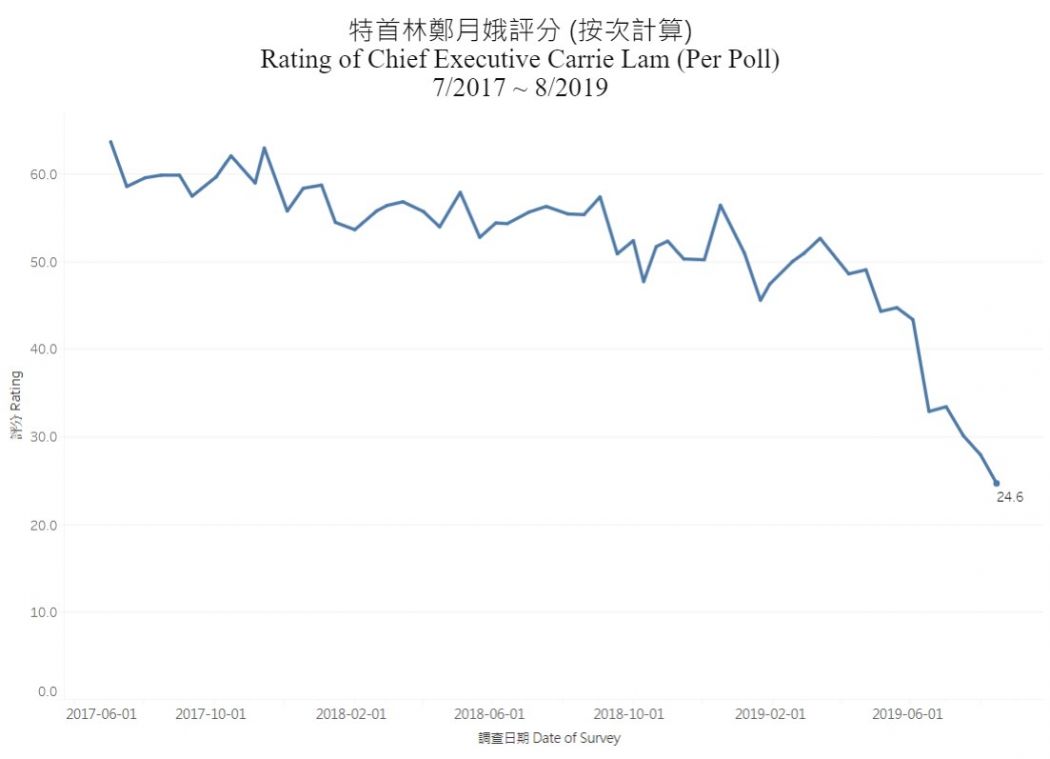Chief Executive Carrie Lam’s popularity rating has dipped to 24.6 points out of 100 – a record low among any post-colonial chief executive, according to the latest public survey.
The Hong Kong Public Opinion Research Institute, the successor of the University of Hong Kong’s Public Opinion Programme, interviewed 1,023 people between August 15 and 20.

Compared to the last survey conducted in the first week of August, Lam’s rating dropped 3.3 points. It represents a new low for her tenure.
Asked if people would support Lam as the chief executive if they had the right to vote, only 17 per cent said they would, representing a drop of three per cent from the last survey and a record low. 76 per cent said they would not support her, representing an increase of four per cent – also a new record.
The rate of satisfaction in the Hong Kong government stood at 14 per cent, whilst those who said they were not satisfied stood at 77 per cent. Again, the figures represent the lowest satisfaction rate since 1997.

Trust rate in the Hong Kong government stood at 27 per cent in the latest survey, whilst the distrust rate stood at 64 per cent. The figures represent new records in distrust since the survey launched in 1992.
Meanwhile, the satisfaction rate in the current livelihood and political conditions in Hong Kong stood at their lowest since 1992.

Chung Kim-wah, an assistant professor at Hong Kong Polytechnic University’s Department of Applied Social Sciences, said at a press conference on Tuesday that the numbers were “horrifying.”
“Everything is at its record low,” he said. “I thought it was the lowest possible rating in the last survey, but turns out it could be even lower.”
Chung said he expected that the rating would dip even lower in two weeks following Lam’s remarks on emergency legislation.
He said the government should try to make people with different political views less angry, but it has failed to do so.
Lam has said on Tuesday that she would not resign.

“I think a responsible chief executive at this point in time should continue to hold the fort and do her utmost to restore law and order in Hong Kong. I wouldn’t say that my government has lost control,” she said.
Her remarks stand in contract to a pledge she made during her 2017 election campaign. “If the mainstream view of the Hong Kong people is such that I can no longer serve as the CE, I shall resign,” Lam said during a televised debate.

The Lam administration’s ill-fated extradition bill would have allowed case-by-case fugitive transfers to China, which lacks rights protections. Though she declared the bill “dead,” she has dodged questions over why it cannot be withdrawn from the legislature.
Since June, large-scale peaceful protests have escalated into – sometimes violent – displays of dissent over Beijing’s encroachment, democracy, alleged police brutality, surveillance and other community grievances. Demonstrators are demanding a complete withdrawal of the bill, a fully independent probe into police behaviour, amnesty for those arrested, universal suffrage and a halt to the characterisation of protests as “riots.”
Hong Kong Free Press relies on direct reader support. Help safeguard independent journalism and press freedom as we invest more in freelancers, overtime, safety gear & insurance during this summer’s protests. 10 ways to support us.

